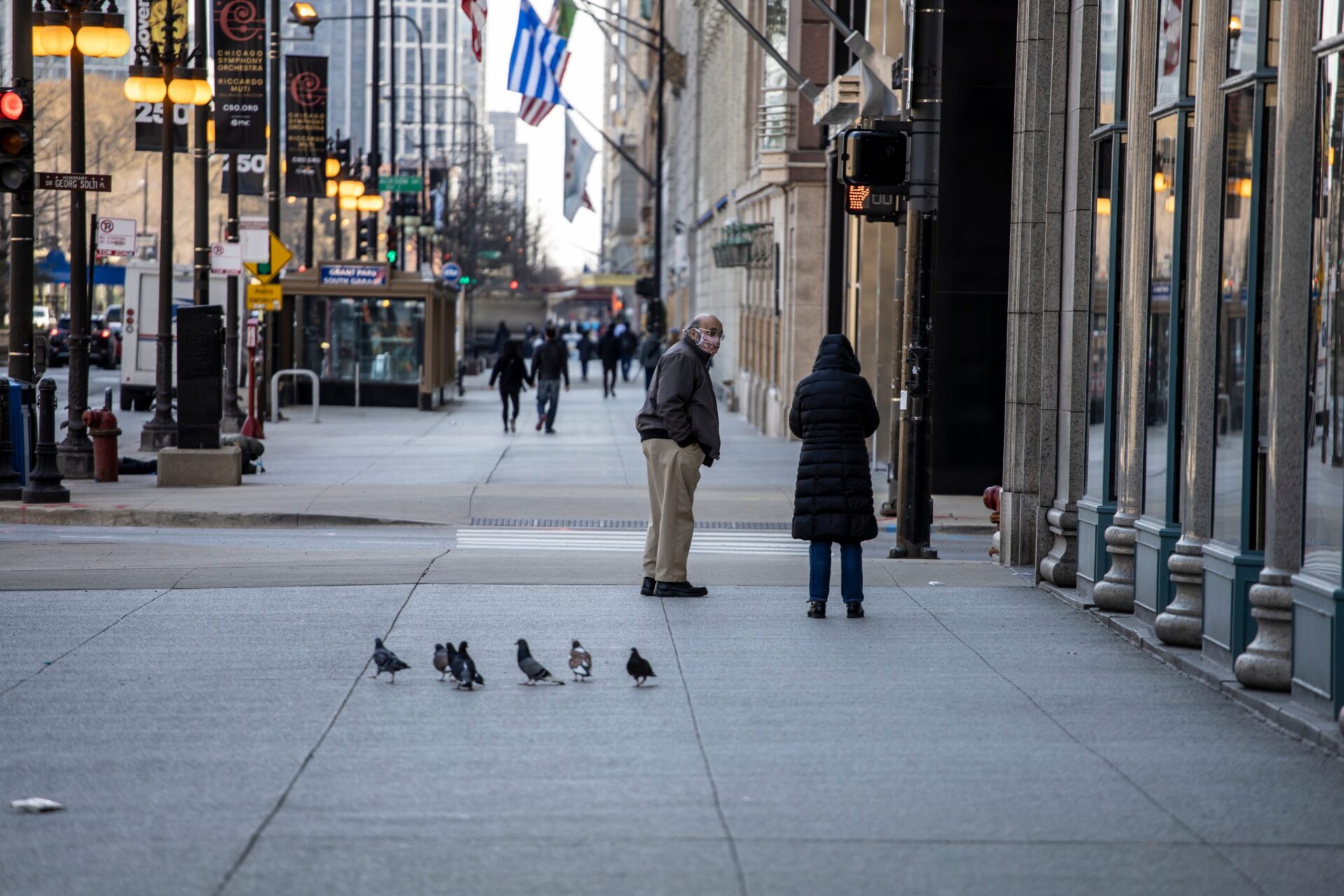04.23.20
Multifamily Brokerage Amid COVID-19 – Kiser Group’s Brokers Share What They Are Experiencing In the Market

From listing to marketing to showings to escrows to closing, multifamily brokerage is different than it was in early March. Kiser Group’s Noah Birk, Aaron Sklar, Matt Halper, Danny Mantis and Lee Kiser share insight on current activity levels versus normal, what they are experiencing in the Chicagoland multifamily market, and where they are focusing their efforts during shelter in place.
New Inventory Coming To Market
On the south side of Chicago, Noah Birk and Aaron Sklar’s team has brought six new listings to market since March 10. For them, that number is less than they expect in March and April during normal market conditions.
In Chicago’s suburbs, Matt Halper and Danny Mantis listed and began marketing Sunset Village Apartments in Waukegan, Illinois, just before COVID-19 precautions began. “When we first launched this listing, we had a good level of interest,” said Mantis. “However, marketing activity has been limited to phone calls due to the high concentration of elderly tenants in the building.”
The suburban team has a new listing in the near west suburbs but decided strategically to postpone marketing. “Although we can market the property without tours, our client just finished a complete rehab of the building and to appreciate the value added, a physical tour is important,” said Mantis. “In discussing with our client, we decided we would delay the launch of the marketing until we can conduct tours at a more normal pace.”
“The good news is that since the state order was issued we are still actively listing properties. We listed ten new properties since March 10, which currently exceeds our 2019 pace,” said Lee Kiser.
Showing Multifamily Listings
Throughout the city and surrounding areas, Kiser Group brokers are adapting their marketing and showings of current listings. Although property showings are considered an essential service, not everyone is able or willing to enter a multifamily building for a tour.
“Our business has definitely evolved over the past month to reflect new changes and safety precautions,” said Sklar. “We’re limiting the number of showings, and we’re integrating digital and virtual walkthroughs, all with the aim of maintaining a safe environment for our clients, the tenants in the building, and our team.”
“Since the order was issued, we’re conducting four to five showings per week, which is down considerably,” said Birk. “Between our team, we typically do that many or more showings per day.”
For Matt Halper and Danny Mantis, showings in suburban markets have nearly stopped and are becoming suspended.
“Our clients are not as interested in virtual tours,” said Halper. “And we are not conducting showings in occupied units.”
“Most buyers we’re working with aren’t requesting a tour right now – even vacant units,” said Mantis. “Interestingly, we’ve had more incoming calls from buyers looking for inventory than at any prior point in my career.”
“Although tours are less frequent than usual, we’re still able to market effectively,” said Kiser. “We have signed six new sale contracts since March 10.”
Closing Deals Amid COVID-19
Since the Stay-At-Home order was executed in early March, Kiser Group Brokers have been adapting to more closing challenges. Some of these challenges are related to financing and others are logistical.
“As a team, we’ve had five closings since March 1,” said Sklar. “However, all of our closings since the Stay-At-Home Order was executed in Illinois have had several additional hurdles requiring ancillary support to overcome.”
“Escrows have been normal, other than financing,” said Birk. “Predicting what the banks are going to do has been the biggest wild card by far. Several banks have pulled out of deals at the last minute. We’re surprised by these curve balls and scramble to try and find replacement debt quickly.”
“We’ve also seen lenders delay funding wanting to see the COVID-19 related impact on the building’s cash flow, so escrows are taking longer,” said Halper. “One escrow was extended at the lenders request because they want to see how rent collections are in the coming months.”
“Another big hurdle is departments being closed,” said Mantis. “Some municipalities require a sale inspection of a building. We have one escrow awaiting a village inspection but with that department shut down so the closing will be delayed.”
Other new escrow hurdles being experienced include providing additional financial information, revised appraisals, and additional representations and warranties.
“We closed one deal since early March, and are glad we got it done early on,” said Mantis. “We recently heard that despite the current environment, the buyer, since closing the deal, was actually able to increase the rents to what we had forecasted – about 20%”
“The multifamily brokerage industry has definitely slowed during the last 30 days,” said Kiser, “however, we have a higher number of analyses in progress than we have ever had as a company. When the order is lifted, I anticipate a highly active rebound for both sellers and buyers.”
Relationships & Research
All of the brokers voiced being busier than ever. From consulting with owners and investors about the multifamily market to researching and databasing, the needs of clients and business are increasing.
“We are spending a great deal of time staying in touch with our existing relationships, but we’re also actively building new relationships. We’re constantly talking with both existing and new relationships, providing insight on what we’re seeing and hearing – while at the same time learning about those clients’ “new” needs and goals,” said Birk. “Our mission as commercial brokers is not just to meet, but exceed our clients’ business and financial goals – and now is the perfect time to strategize how this can be achieved.”
“Clients are very curious what we are hearing from other clients and banks,” said Sklar. “We are in a privileged position to hear what’s going on in the market directly from the sources. That knowledge is always a useful tool to help owners and investors make better business decisions, but especially so during this unpredictable time.”
“I’ve been doing a lot of database work, from cleaning up data to cataloging to adding more buildings and contacts to our CRM,” said Mantis. “I’ve only been doing brokerage for five years, but I get the distinct impression that what we’re working through is not a normal part of the real estate cycle. While some of my business seems to be on pause right now, I find myself having more insightful conversations than ever – not as much about buying or selling as clients just looking for information, which we’re able to provide.”
“We are researching. The research work on the front end of any assignment is the way that we are able to build an efficient market for our clients and find buyers for them,” said Halper. “When that work is put in up front, that’s how we get results such as 30 tours and a buyer within a few weeks. We’re using this lull to expand our research, which will produce even better marketing results for our clients on future listings.”
No one knows what impact COVID-19 will have on multifamily real estate values in Chicagoland and there should be no cookie cutter reaction to the issue. Each property and owner presents a unique situation and perspective. It is very important to talk with your broker about what’s happening in the industry, your market, and your building to understand what people are doing in the short-term, so that you can more effectively plan your long-term objectives.
